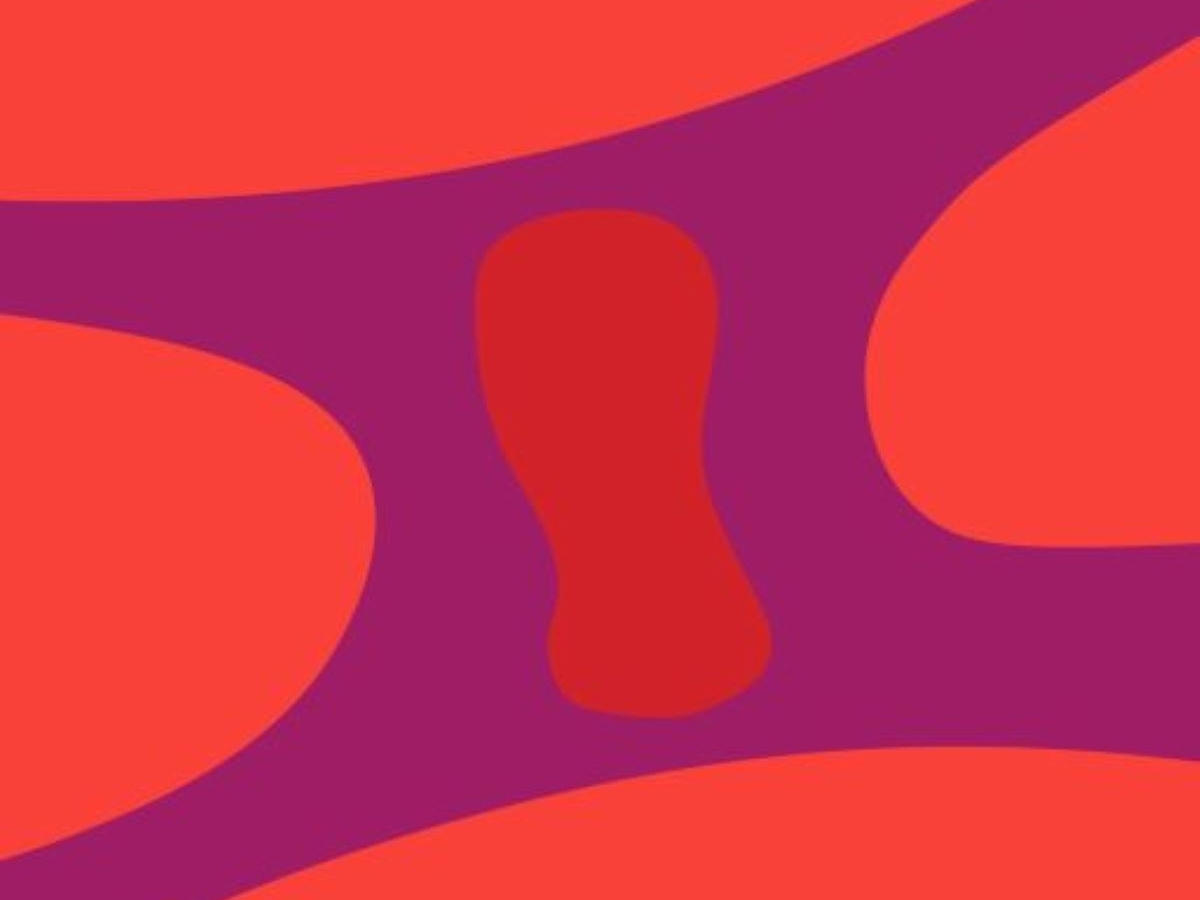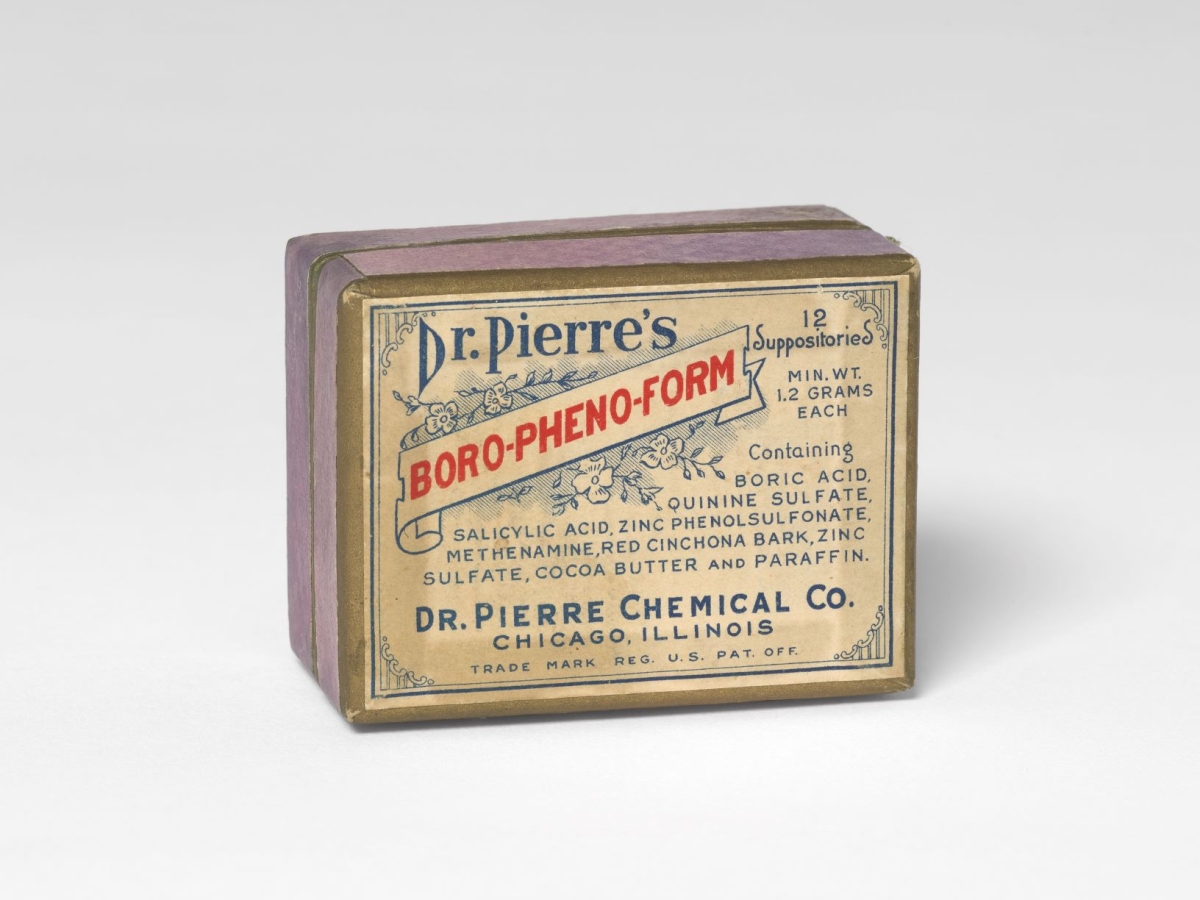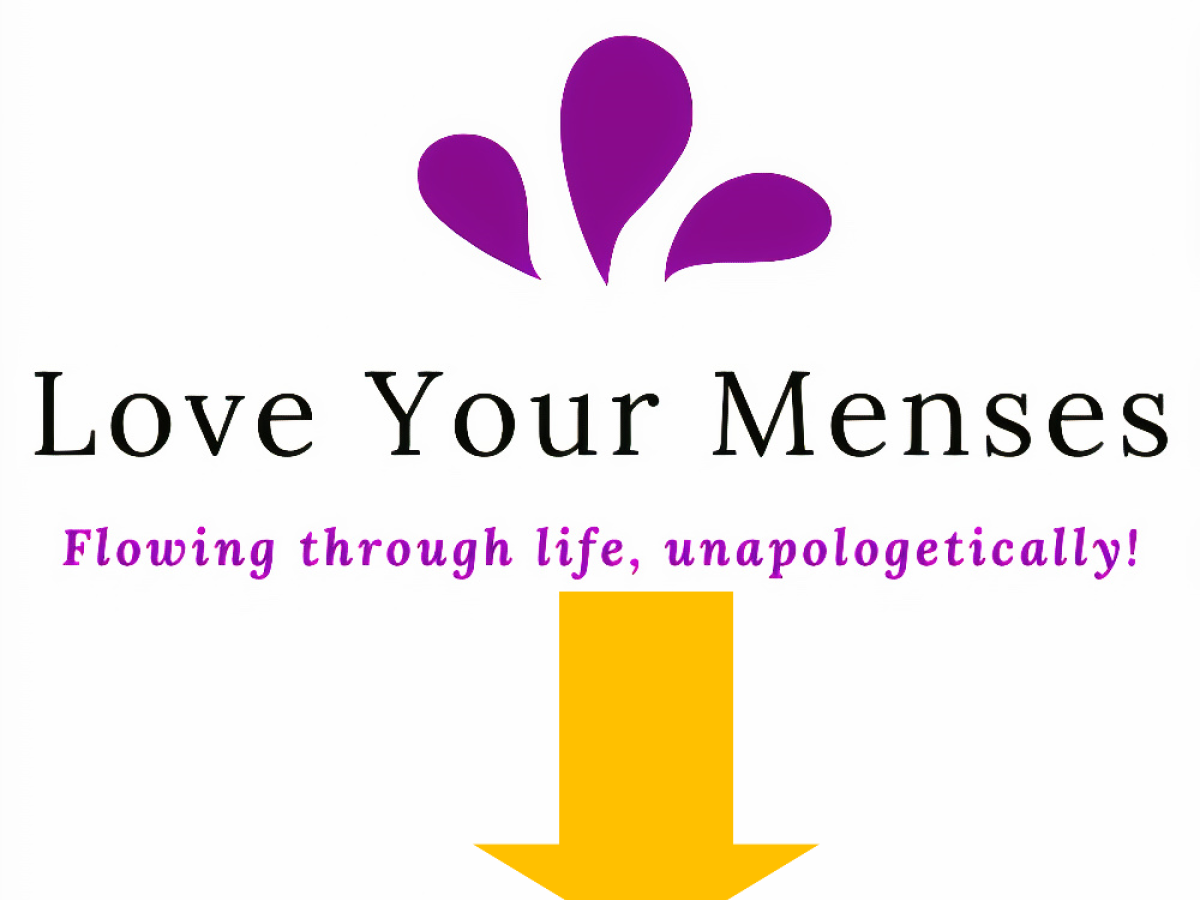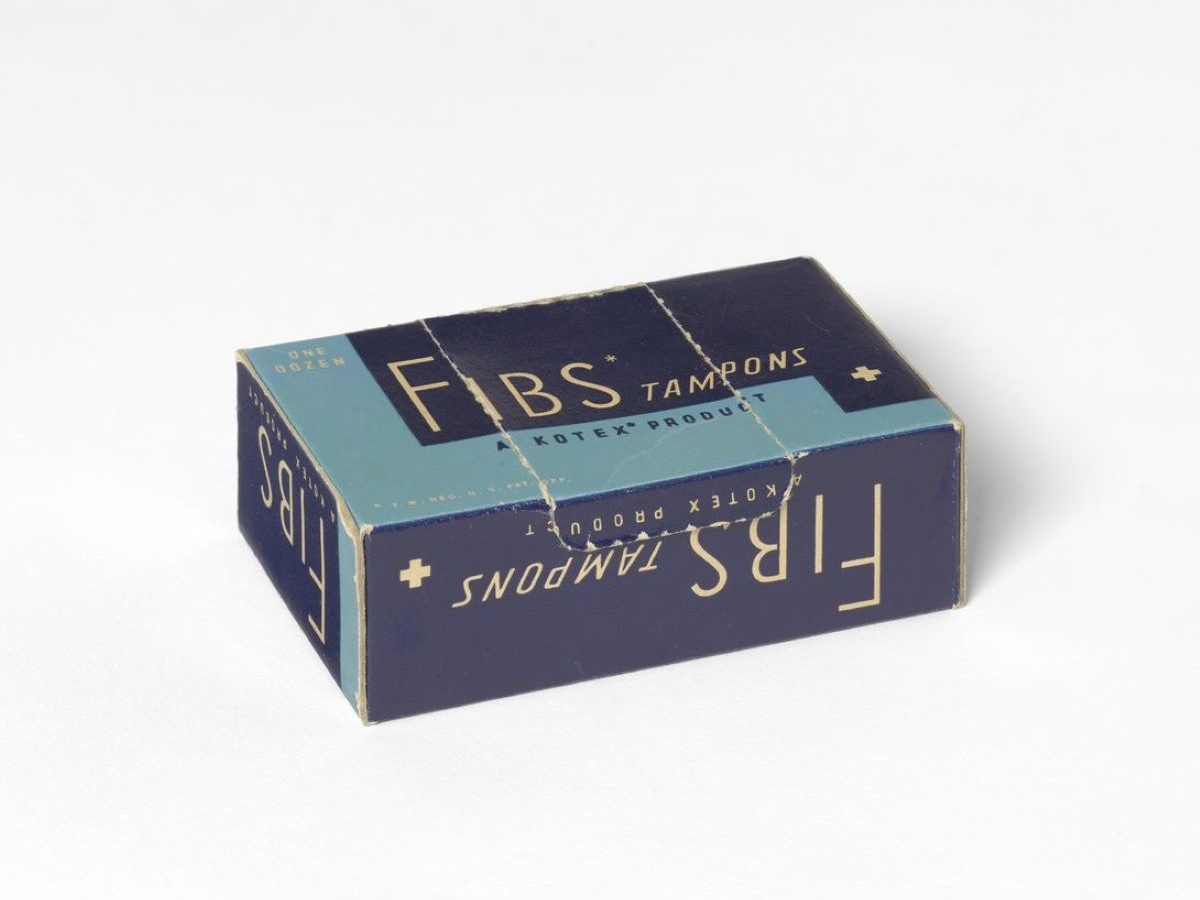Throughout the 20th century, the marketing and design of menstrual products often stigmatized menstruation as an unmentionable bodily affliction. Menstruation was wrapped in euphemism: that time of the month, a weakness, a nuisance. “Feminine hygiene” products offered sanitation, invisibility, and freedom—but at what cost? Out for Blood: Feminine Hygiene to Menstrual Equity shows how marketing and social norms around menstruation create a cultural construct with power to shape people’s lives.
Feminine hygiene product advertising, frequently in the form of educational pamphlets, taught women’s anatomy through diagrams while offering advice on what one could and could not do while menstruating. Curative medications for various women’s complaints were marketed to fix the troublesome female body; antiseptics and douches promised to sanitize offensive vaginas. Pad and tampon brands advertised guarantees of no leakage, no odors, no possibility of being found out.
With the women’s movement of the 1960s and 1970s, feminists responded to the incessant call for menstrual secrecy and cleanliness through transformative health publications, poetry, and artworks. The exhibition highlights the groundbreaking work of the Boston Women’s Health Book Collective, the words of menstruating girls and women, and the production of zines that challenge toxic products and gendered assumptions.
Today, a worldwide movement for menstrual equity strives to end cultural stigma, to address period poverty, and to develop toxin-free, sustainable products. Menstrual equity activism centers class and race as well as gender. The movement fosters acceptance of all menstruating people.
We encourage visitors to bring a period product which will be donated to Love Your Menses, a community-based organization in Boston that is committed to breaking the period taboo and making menstruation equitable for girls, women and all people who menstruate, through community conversations, evidence-based menstrual health education, youth programming, resource connection, and mentorship. Donations of all-cotton products preferred, but all reusable or disposable products are welcome.



